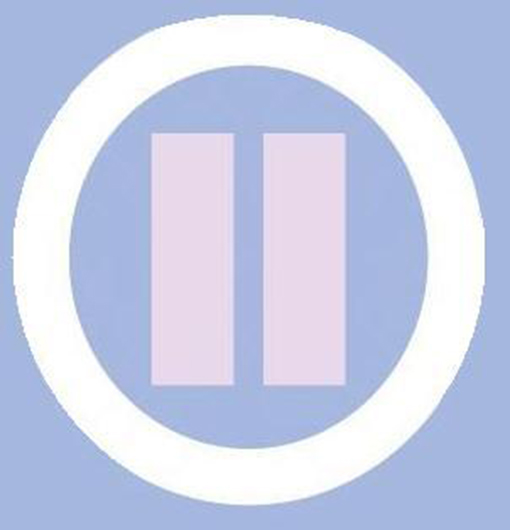Author: Alexis Walters
As the clouds roll in and the sun begins to set at 4:30 in the afternoon, many people find themselves getting into a familiar winter funk. The tendency to have less energy during winter months is as natural as the changing of the seasons themselves. More drastic changes in mood and behavior, however, can be indicative of Seasonal Affective Disorder (SAD). Let’s take a look at how to discern the winter blues from SAD and what you can do to address both types of seasonal mood change.
Seasonal Affective Disorder
What causes it…
The decrease in natural sunlight impacts people in multiple ways. It can throw off your circadian rhythm (your body’s natural pattern of sleeping and waking) and lead to decreases in both serotonin (a neurotransmitter which affects mood) and melatonin (a hormone which influences sleep patterns and mood).
From an evolutionary perspective, it is theorized that seasonal mood shifts are an adaptive response to colder weather. Growing conditions are less favorable in winter months, making food more scarce. Decreased mood and activity level reduces the need for calorie intake, making these symptoms advantageous evolutionarily. This same seasonal shift in behavior is exhibited by many other species. An extreme example is hibernation, a complete state of inactivity during winter months. Many, if not most, species respond to a drop in temperature by decreasing their level of activity to some degree.
These causes are reflected in the geographical distribution of SAD as well. SAD occurs predominantly in people living far north of the equator. The colder and cloudier it gets, the more people tend to be affected by seasonal mood change.
What are the symptoms…
SAD is not an independent diagnosis or disorder. It is a specifier which can be applied to describe the depressive symptoms of a person diagnosed with a Major Depressive Episode(s), Major Depressive Disorder, or Bipolar Disorder. To qualify for this specifier, a person’s depressive symptoms must have occurred during the same time of year for two consecutive years without any depressive episodes occurring during other seasons. In addition, the majority of depressive episodes the person has experienced throughout their life must have followed this same cyclical pattern. In other words, this diagnostic qualifier applies only to people who consistently experience Major Depressive Episodes at a specific time each year. According to the American Psychiatric Association, a Major Depressive Episode is a change in mood which lasts at least two weeks, causes significant distress or impairment in functioning, and includes at least five of the following symptoms:
- Depressed mood most of the day, nearly every day
- Diminished interest or pleasure in almost all activities
- Decrease or increase of appetite with accompanying weight loss or gain
- Insomnia or excessive sleep
- Accelerated thoughts with physical signs of anxiety (i.e. – pacing, biting of fingernails, constant tapping of feet, etc.) or significantly decreased thinking and movement
- Fatigue/loss of energy
- Feelings of worthlessness or inappropriate guilt
- Difficulty concentrating or making decisions
- Thoughts of suicide
When is it time to seek help…
If you think you fit this description, even if the seasonal pattern doesn’t apply, it is important to see a doctor, therapist or psychiatrist for assistance. Regardless of whether you meet the description above, it may be time to seek help if you notice changes in your appetite or sleeping habits, you find yourself using or increasing your use of alcohol or drugs, you are having thoughts of suicide, you feel a general sense of hopelessness or worthlessness, or you notice that you are unhappy more than not. There are many effective treatments for depression. There is no need to face it alone or suffer unnecessarily.
When it’s the winter blues, not SAD…
If you determine that you do not qualify as having a Major Depressive Episode or SAD, but are feeling grumpy nonetheless, it may be a good time to rethink your approach to winter. Western culture and thinking tends to emphasize activity, creation, productivity. There is not as much value placed on self-reflection, silence, rest. If we internalize this value system and perspective, we can become unbalanced.
Taoist philosophy conceptualizes this balance in terms of yin and yang, opposing and complementary energies which govern existence. Yin energy is receptive, quiet, patient, introverted, cool. Yang energy is productive, dynamic, stimulating, fast, warm. Both are valuable and essential in achieving internal balance. Winter is the yin season, a time of becoming more internally focused, of rest, of quiet and listening rather than expressing.
Instead of fighting against the natural influence of the winter season by increasing activity and judging yourself for not wanting to hit the gym 7 nights a week, embrace the yin season. Listen to your body, your natural energy level and allow this seasons rhythms to guide you. Discover what you love about this time of year. Explore a different side of yourself. Variety is the spice of life. Change with the weather rather than struggling against it. You may find you fall in love with the cold.
Article Source: http://www.articlesbase.com/mental-health-articles/seasonal-affective-disorder-coping-with-winter-sadness-3713534.html
About the Author
ALEXIS WALTERS is a Licensed Marriage and Family Therapist with a private practice in Los Gatos, CA. She has over a decade of experience working with adults and adolescents, covering a broad range of psychotherapeutic issues.
Embrace change. Find empowerment. Call to schedule a session today.
Alexis Walters, MA, LMFT
334 Village Lane Los Gatos CA 95030 http://alexiswalters.com/
**Phone sessions available**
Copyright 2010 ALEXIS WALTERS, LMFT – All Rights Reserved
About Manifest Excellence, LLC
Manifest Excellence, LLC supports people in improving personal wellness by addressing the five key areas that impact health. They combine over 20 years experience in traditional health promotion with a holistic and comprehensive wellness philosophy. This innovative combination creates effective tools and strategies for creating optimal health and wellness.
- 10 Quick, Easy Holiday Self-Care Tips - December 15, 2017
- Health Benefits of Kindness and Compassion - June 3, 2017
- Why Self-Care is Good for Your Health - May 10, 2017






